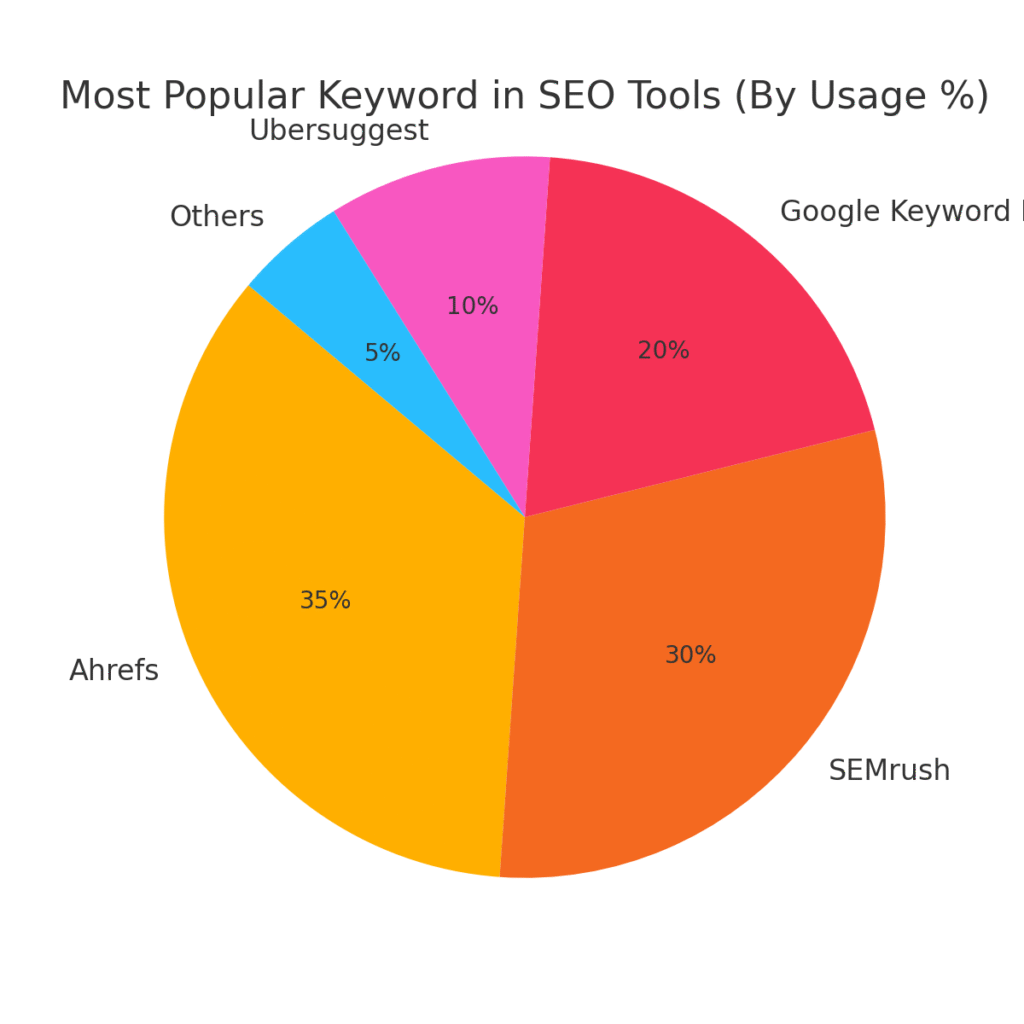Ever feel like you’re doing everything right like writing great content, designing a clean website, sharing on social platforms but still getting no response from Google?
You’re not alone.
One of the biggest reasons websites don’t rank isn’t the content or the backlinks.
It’s the keyword in SEO they’ve chosen.
Here’s a surprising stat:
👉 Over 90% of content gets zero organic traffic from Google. (Source: Ahrefs)
Yes, zero.
And the culprit? Usually a bad keyword strategy.
Now imagine if you could crack the code to find perfect keywords the ones your audience is actively searching for. Not just for views, but the kind that bring in the right clicks, real leads, and results.
This guide is your shortcut to doing exactly that.
Why This Guide is Worth Your Time
- You’re tired of publishing posts no one reads
- You want real, consistent search traffic
- You need practical, proven tips that work today
- You want to master keyword in SEO without fancy jargon
Let’s bridge that gap between effort and results together.
What You’ll Learn
- What is a keyword in SEO really?
- Why most people choose the wrong keywords
- How to find perfect keywords step-by-step
- Free + premium tools that make it easy
- Tips, traps, examples & a final checklist
📌What is a Keyword in SEO?
In simple terms, a keyword in SEO is the phrase people type into Google when they’re looking for answers, services, or solutions.
It tells search engines:
“Hey, this page is about this topic.”
Examples:
- “best protein shake for women”
- “SEO tools for beginners”
- “how to stop hair fall naturally”
Here’s the key: The better your keyword matches what people are really searching for, the higher you’ll rank—and the more traffic you’ll get.
Why Most People Fail at Keyword in SEO
Let’s be honest have you ever:
- Picked a keyword just because it sounded good?
- Targeted a super broad term like “fitness”?
- Ignored what your audience is actually looking for?
These are common mistakes.
And they result in:
- Zero visibility
- High bounce rate
- Wrong audience
- Low conversions
5 Steps to Find the Perfect Keyword in SEO
Here’s a super simple, super effective system that even beginners can follow:
1. Know Your Audience First
Before typing anything into a tool, ask:
What is my audience searching for right now?
If you’re a fitness blogger:
- Are they looking for products, DIY tips, or morning routines?
- Do they want quick fixes or science-backed advice?
Use forums like Reddit, Quora, or even YouTube comments to listen to your audience.
2. Use Google Auto-Suggest & PAA Box
Go to Google. Type in a broad term like “SEO tools.”
Now look:
- What does Google suggest as you type?
- What’s in the “People Also Ask” box?
Example:
Type “best SEO…” and Google may suggest:
- “best SEO tools for beginners”
- “best SEO plugin for WordPress”
These are real, live keywords in SEO with built-in demand.
3. Plug It Into Keyword Tools
Use keyword research tools to check:
- ✅ Search volume (how many people are searching?)
- ✅ Keyword difficulty (KD) (can you rank?)
- ✅ CPC (commercial value)
🔧 Tools to Try:
- Google Keyword Planner (free)
- Ubersuggest (freemium)
- AnswerThePublic (free)
- Ahrefs / SEMrush (paid, powerful)
- KeywordTool.io (freemium)

Understand how to find keyword in SEO.
4. Study What’s Already Ranking
Google your keyword. Look at:
- Who’s ranking in the top 10?
- What topics and angles are they using?
- Can you do it better, deeper, or differently?
Ask:
How can I serve the user better than this page?
Pro tip: Check the word count, headlines, and structure of top results.
5. Look for Long-Tail Opportunities
Instead of:
“fitness”
Use:
“10-minute home workout for busy moms”
Why it works:
- Less competition
- Higher intent
- Easier to rank
- More specific audience
🔍 Fun stat: Long-tail keywords account for 70%+ of all search traffic.
Also Read: 10 Free Keyword Tools That Skyrocketed My SEO in 7 Days
Avoid These Keyword in SEO Mistakes
- Choosing only high-volume keywords (too competitive)
- Ignoring user intent (informational vs commercial)
- Forgetting mobile-friendly phrases
- Stuffing your keyword unnaturally
- Skipping localization (huge for small businesses!)
Ask:
If I were my ideal reader, would I search this exact phrase?
Real-Life Example
Meet Priya, a food blogger.
She used to write posts with titles like:
“Healthy Recipes for You”
After research, she switched to:
“Easy Indian Lunch Recipes for Working Women”
Result?
She saw a 120% increase in organic traffic in just 3 months by simply targeting better keywords in SEO.
Keyword in SEO Toolkit (Free & Paid)
Tip: Mix free and paid tools for the best results.
Also Read Here: How I Used 7 Tools in Digital Marketing to 10x My Leads
Final Keyword Success Checklist
Before finalising a keyword in SEO, ask yourself:
- Does it match my audience’s intent?
- Is the competition realistic for my domain authority?
- Can I create something more helpful than what’s ranking now?
- Does it have decent traffic potential?
- Is it specific enough to attract the right users?
Conclusion: What You’ve Learned
Let’s recap your SEO game plan:
- A keyword in SEO is not just a word it’s a connection between your content and your audience.
- The wrong keyword brings traffic that doesn’t stick.
- The right keyword = higher rankings, better engagement, and real conversions.
- Using the right tools, mindset, and steps, anyone can master keyword research even total beginners.
End Result
Mastering the art of choosing the perfect keyword in SEO will:
- Bring in more targeted traffic
- Reduce bounce rate
- Improve rankings
- Convert visitors into loyal readers or buyers
You’re no longer guessing. You’re strategically selecting keywords that open doors to SEO success.
Your Next Step
👉 Pick one blog post today and revise the keyword.
👉 Use one free tool (Ubersuggest or Google Planner) and start searching.
👉 Download our free “Keyword Planning Checklist” to stay on track.
🔔 Want more SEO secrets and traffic tips delivered weekly? Dm Now.






